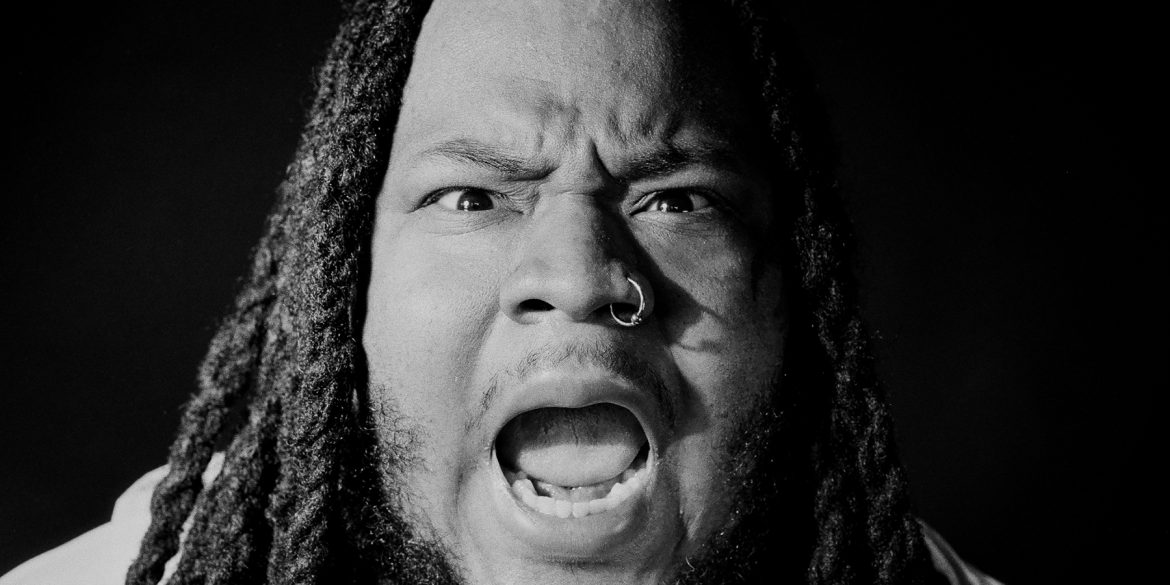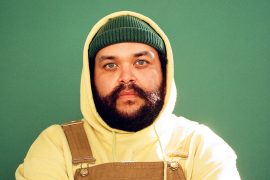One of the hardest things to do in the music industry is set yourself apart from the crowd. Technology has made music accessible to almost anyone who desires it, so being able to stand out is paramount. The industry has been saturated with clones which is why when an artist like Mula Kkhan comes around it’s refreshing, even if he does scare you just a little bit.
Mula Kkhan has been a leading voice in the Indy rap scene for almost four years. His Inferno series is consistently among the best released projects every year, and delivers top tier music with an unapologetic grit sure to offend most midwestern grandparents. I got to sit down with the self described ‘dark-bop’ curator to hear about the creation of his name, the metal and alternative elements to his music and his first diss track, delivered at a high school talent show.
Without further ado, please welcome Mula Kkhan to Art Identified
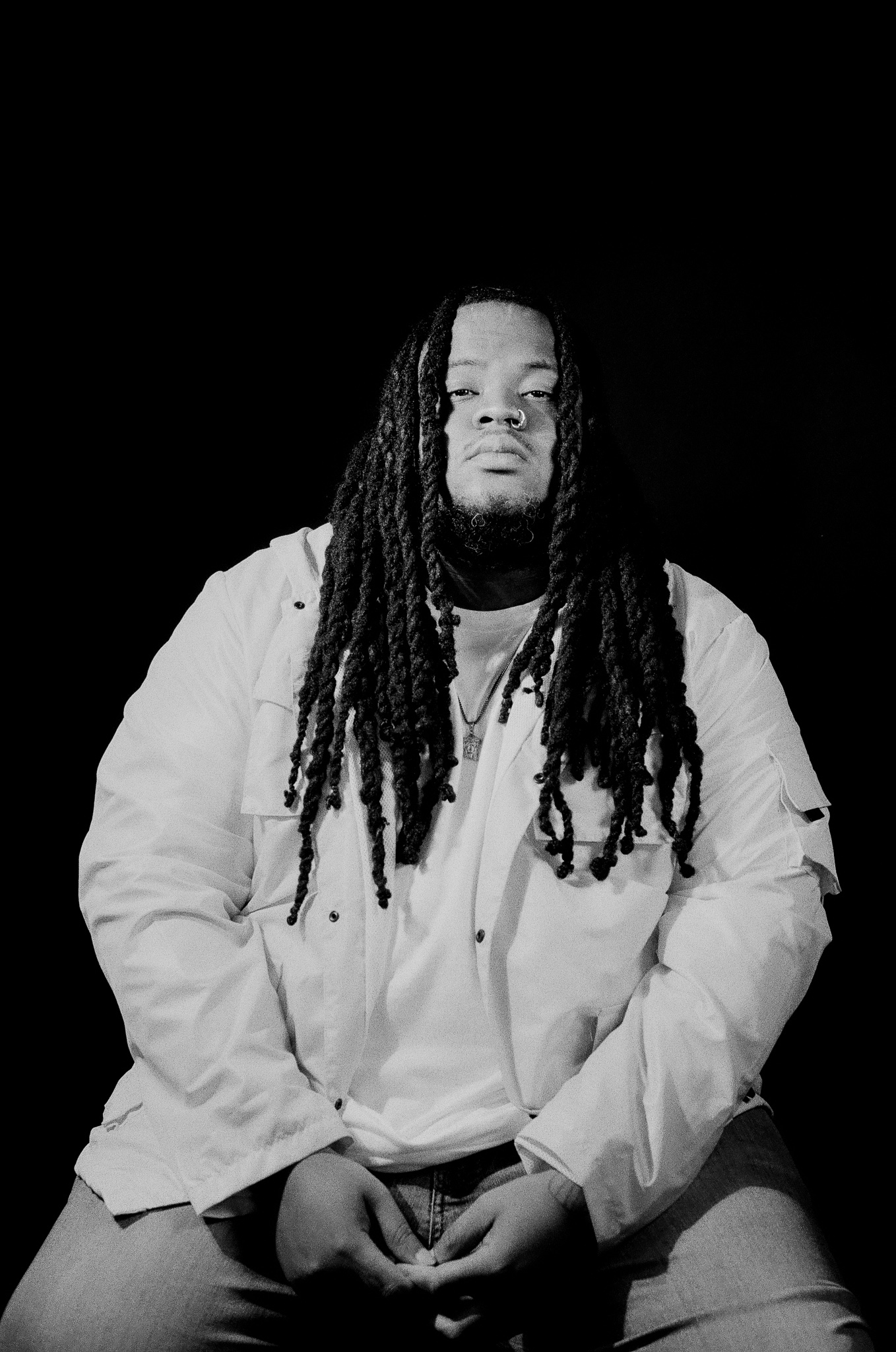
Jacob Moran: Thanks for coming in. I’m a huge fan. Let’s get to know you a little. Where did the name Mula Kkhan come from?
Mula Kkhan: Initially my name was T-Moolah when i was a sophomore in high school. My homie Brandon Jones convinced me to change my name. He straight up told me the way I spelt my name was stupid and that I should change it. So I started thinking of acronyms that could work with my name. I eventually came up with ‘Misunderstanding Life’s Angles’. I was a kid who went through some shit so that felt fitting to me. I love Genghis Khan so that’s where Kkhan comes from. Mula Kkhan stuck.
JM: I was going to say how I think your name really leans into the feeling of your music. It’s aggressive and carries a certain grittiness. Early on in your career did you always want to have that raw aggression feel to your music?
MK: I started off making backpack rap. Then I wanted to make conscious trap music, but just didn’t really know how. I used to battle rap too. As far as my specific sound now it just kind of came naturally. We were partying one night and I just started freestyling for hours and my homies were making alternative instrumentals, which I feel like we were doing before it became really prevalent in Hip-Hop. Aggression has always been a key to my persona and success as a rapper.
JM: What are your origins in battle rap? Can you expand a little bit upon that?
MK: Man it was wild. It actually started at a talent show. I made a diss record aimed at someone on stage and it essentially caused everyone to go crazy. They called it a riot, but people were just feeling the energy. Mind you I went to Brownsburg at this time, so they weren’t used to that kind of energy. People went wild. I got expelled the next day because of it, which was wild, because I didn’t curse at all. He had tried to storm the stage afterwards, but people grabbed us before we could start to fight. After I saw what kind of energy I could give people it was wrap, I knew I was going to be a rapper.
JM: You’ve cultivated such an image and sound for yourself. When a Kkhan song comes on everyone knows it’s you from the second you hear your voice. How hard is it to develop an original sound in a market saturated with copy-cats and trends?
MK: Early on in my career I was so focused on trying to be different that it felt very forced. No one wants to listen to someone who is intentionally trying to be different, they want to listen to someone who is different by nature. I moved to Las Vegas and started meeting a lot of different people who made a lot of different music. My homie Ace coached me to develop the sound I have achieved now. I just decided to do what I liked and the rest came naturally. The words and the energy just comes to me. Nothing is forced now and that is what makes it work.
JM: What really fascinates me about your music is how flawlessly you blend metal elements with hardcore rap elements. It’s like you’re a bridge for metalheads who don’t like rap, and rap fans who don’t like metal. What do you think about that?
MK: You hit the nail on the head. That has been my intention for the past couple of years. I’ve always enjoyed so many different types of music and having spent my time in Las Vegas and being exposed to all these hybrid sounds let me know I could do something similar, but with my own gritty spin. Once that clicked in my mind I knew that was what I wanted to do. I’m also a student of the game. I listen to music all day, everyday. I’m always trying to grow my artistry by studying others.
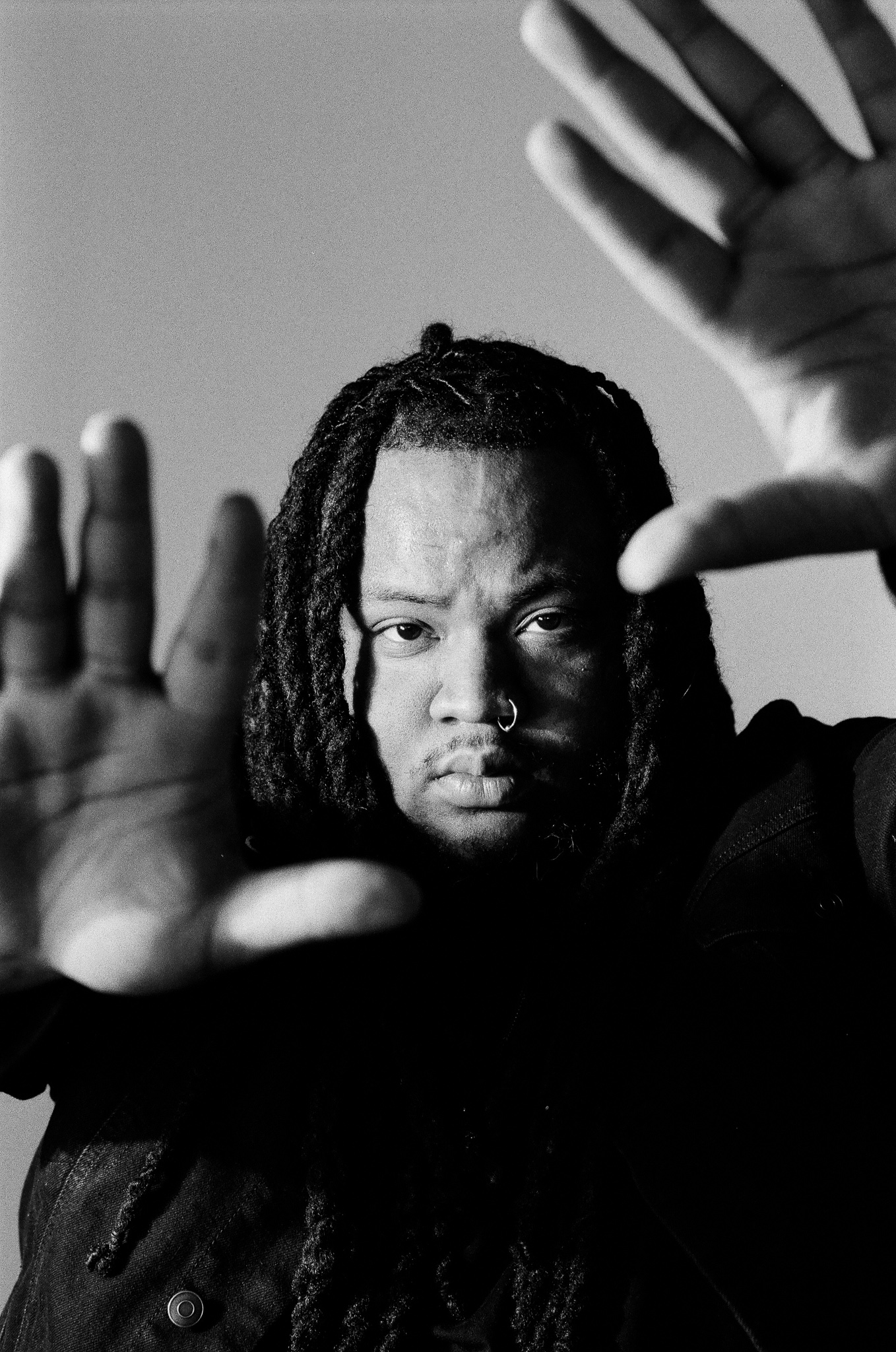
JM: You’ve got a good amount of projects out and are consistently putting out top notch albums. Most people are probably familiar with the Inferno series which you just released the third one for. Did you know Inferno was going to be a series after you made the first one?
MK: It wasn’t even going to be titled ‘Inferno’ at first. It initially was going to be called ‘Hell Raiser’ and it was only supposed to be a series of EP’s. Once I started making songs and built a relationship with my producer Sonny Vega the whole energy of Inferno naturally came. I was listening to a beat pack from him on the train one day and I loved them all. He produced five tracks off ‘Inferno’ including the lead single ‘House of Pain’. Once I found that pocket and energy on the first Inferno I knew I was onto something different. So I just kept that energy rolling.
JM: For me, the third ‘Inferno’ felt a little more fun and bouncy. There are a handful of tracks on there where you actually feel like dancing instead of moshing and that showed a slightly different direction for the series but still fit in the linear vibe of the projects. Did you want to switch it up a bit?
MK: I came into ‘Inferno 3’ with the intention of doing something a little different and fun. I call them ‘dark-bops’. It still has that aggressive and dark sound but you can also vibe and dance to it. I want the series to be cohesive while still pushing the envelope and doing some things differently. I wanted to work more on my songwriting and I think I achieved that. If you listen to ‘Inferno 3’ and it makes you wanna dance, chill and tear shit up all at the same time then I did my job with the project.
JM: Congratulations on your recent signing with local record label Near Mint. You’re in great company with other Indy heavyweights like Sirius Blvck & Oreo Jones. Can you expand a little on why you decided to sign?
MK: Sirius Blvck was a big reason. That’s the homie. I love what they’re doing with the vinyl they press and the merchandise they cultivate. It feels less like a label and more like a collective. It was time for me to be a part of something bigger than me to help me get merch out and promote me. The label does a lot more than what people perceive and the way they present their artists is just different. I’m different so it just made sense.
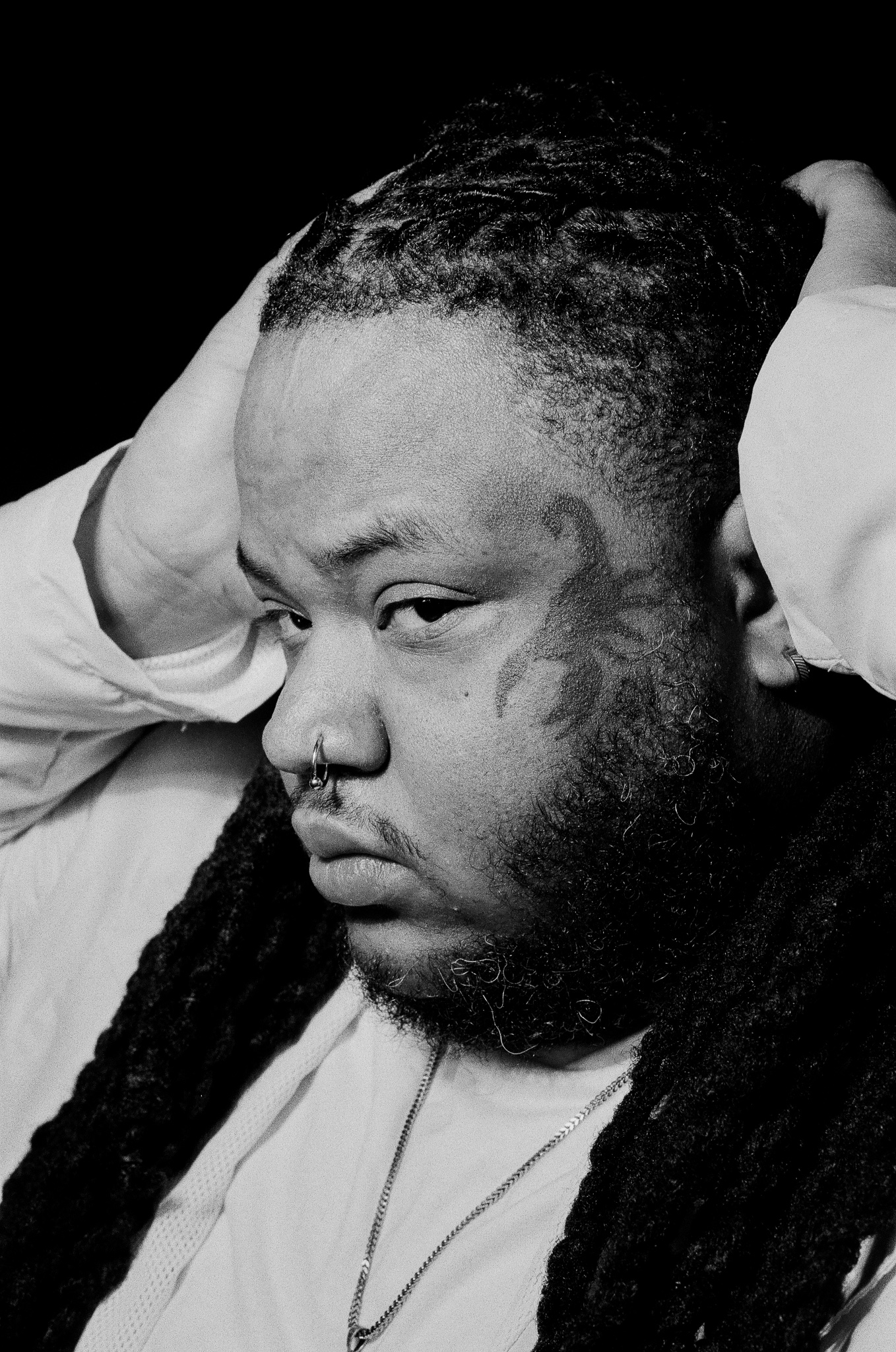
JM: The visuals for your projects are always insane and cinematic. The horror elements are consistent throughout but it doesn’t come off like you’re doing it for shock value. It feels authentic. How big of a fan of horror are you?
MK: Anything horror, I am a fan of. Movies, anime, manga and comics. I love it all. It inspires me to write the music that I do. Those mediums of entertainment always help me to paint a picture through my words whether it’s the way a horror comic or manga is drawn or a scene in a horror movie.
JM: With your sound and vibe being so specifically cultivated, do you ever feel like you’re a victim to your image?
MK: For sure, I love making more sentimental songs like ‘Shawn Michaels’ or ‘Pick up the phone’. I think because of how I look and present myself people really wanna hear that dark trap sound I’ve become known for. But I am definitely a victim of my image. Being in Indianapolis doesn’t exactly help that either. People like a certain sound here so if you are not super conscious, a dope lyricist or making trap people don’t really mess with you. When it comes to alternative trap music here in the city there are not many artists making that sound aside from me and Fazle, so you sometimes get pigeonholed. It’s cool though. I am a dark individual and those songs come from me genuinely through emotion and feelings so I’m at peace with that being my image.
JM: I’m glad you brought up Fazle, I don’t feel like he gets the respect he deserves.
MK: He really doesn’t. He’s another person who really helped me break out of my shell when it came to presenting that dark alternative side of me. When I came to Indy and was trying to do the conscious sound and I just wasn’t feeling it. I met Fazle and he had a song called ‘Johnny Gat’ and it was an alternative trap sounding song. It really broke me out of my shell. I knew I already had it in me, but that song just made me want to show Indy that this was the shit I wanna be known for. Shoutout Pointdexter too, he does some dope alternative rap.
JK: As a wrap up question, I want to get your thoughts on the current state of the music industry here in Indianapolis.
MK: One of my homies that I talk to quite a bit believes that the scene is dead. Personally, I think it’s thriving. There hasn’t been a time since I have been making music where I feel like there are as many quality artists making music in the city than right now. I don’t know who is going to break through, but it could be any of us. There was a gap a couple years ago when it came to quality artists. People like FreshDuzIt, Pointdexter and Ejaaz were in their own lane during their come up. In 2020 though I feel like there is no gap. I genuinely feel like it could be any of us pop off at any moment. I don’t wanna leave anybody out so I don’t want to name drop, but there are just so many quality artists right now. The scene is bubbling and its going to blow soon.
Connect with Mula Kkhan on IG.

